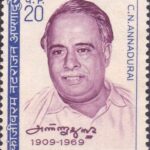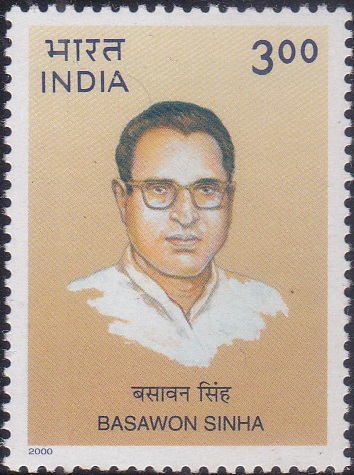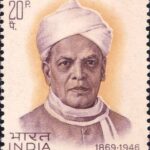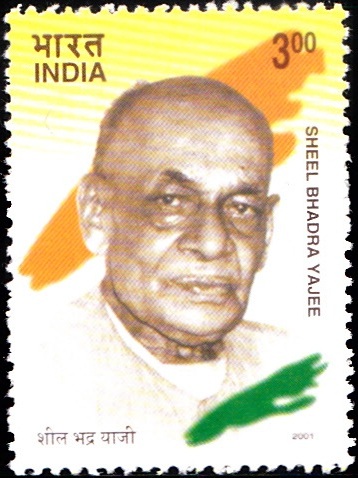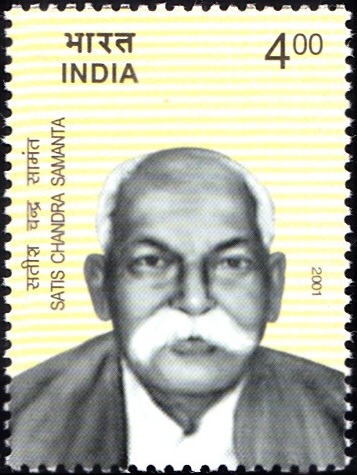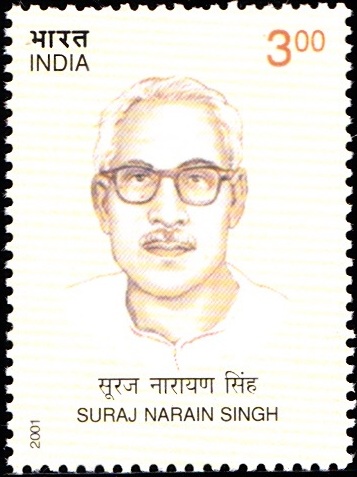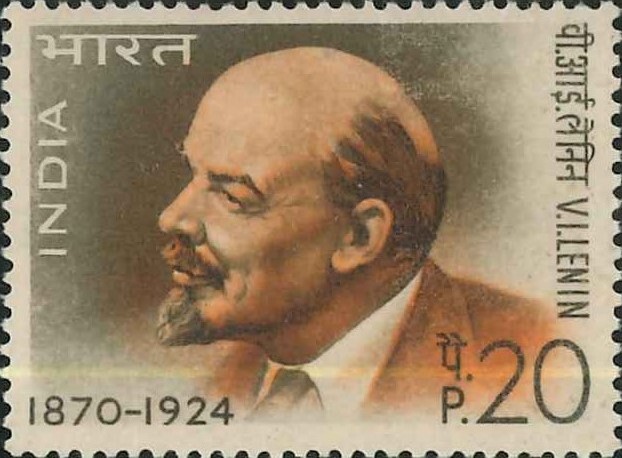
India on Vladimir Ilyich Lenin
A commemorative postage stamp on the Birth Centenary of V. I. Lenin, chairman of the Council of People’s Commissars of the Russian Soviet Federative Socialist Republic (SFSR) (1917-24) and Soviet Union (1922-24) :
 Issued by India
Issued by India
Issued on Apr 22, 1970
Issued for : The Posts and Telegraphs Department is indeed proud to pay its homage to V. I. Lenin by bringing out a special commemorative stamp on the occasion of his first birth centenary.
Type : Stamp, Mint condition
Colour : Raw Sienna and Brilliant Orange
Denomination : 20 Paisa
Overall Size : 3.91 X 2.90 cms.
Printing Size : 3.56 X 2.54 cms.
Perforation : 13 x 13
Watermark : Printed on unwatermarked adhesive stamp paper
Number Printed : 35,00,000
Number per issue sheet : 35
Printing Process : Photogravure
Designed and Printed at : India Security Press
Name : Vladimir Ilyich Ulyanov
Born on Apr 22, 1870 at Ulyanovsk, Russia
Died on Jan 21, 1924 at Gorki Leninskiye, Russia
About :
- Vladimir Ilyich Lenin was born on April 22, 1870 in the family of a school teacher in the provincial town of Simbirsk on the banks of the mighty Volga. From his early youth, Lenin dedicated himself to the cause of the revolution of the working class. His life was a daily re-dedication to its service as one supreme goal. Lenin started his political activities while still a student. When he had barely crossed into his ‘twenties’, he started organising and educating the workers of St. Petersburg (later named Leningrad).
- His activities among the working classes attracted the displeasure of the Czarist regime and he was exiled to Siberia. From 1898 till 1917, he had to live a life of a persecuted revolutionary, either hiding from the police in Russia or forced to live abroad.
- The greatest contribution of Lenin was his leadership of the Great October Socialist Revolution in 1917.
- Lenin was the head of the first Soviet Socialist State and worked out all its decrees, led the victorious defensive war against the foreign interventionists and laid down the broad guide-lines for the future development of the Soviet Union. Lenin was convinced that Socialism was a superior system, that it had immense potentialities, and that mankind had entered a new stage of development.
- Lenin always combined practical revolutionary work with profound study and scientific thought. His collected works run into fifty volumes and lead in the number of translations in the world.
- He paid great attention to the freedom movement in the East, especially India. Lenin had an abiding interest in India and this found a wide range of expression – frequent references to India in his writings, discussions with Indian revolutionaries, study of books and material on India and collection of books by Indian authors for his personal library. He condemned the arrest of Lokmanya Tilak in 1908 and vigorously protested against the Jallianwala Bagh massacre in 1919. He hailed the unity of the Hindus and Muslims in the struggle against British imperialism in the 1920’s and personally received many Indian revolutionaries. In his utterances on India, Lenin presented a remarkably profound appraisal of the characteristic developments of his times.
- On January 21, 1924, Vladimir Ilyich Lenin succumbed to cerebral haemorrhage, caused by bullet injuries received some years earlier. His body is preserved in the Lenin Mausoleum in Moscow, a place of pilgrimage for millions.


